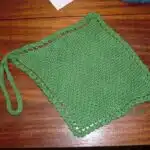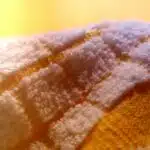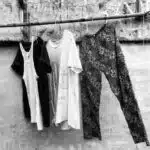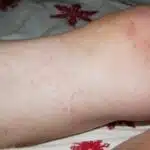As a textile care expert, I understand the importance of properly caring for clothes to keep them looking and smelling fresh. However, one common issue that many people face is trying to remove perfume odors from their clothes. While perfume can be a great way to enhance your personal scent, it can also cling onto fabric fibers and leave an unwanted aroma behind.
In this article, we will explore effective methods for removing perfume odors from clothes. Whether you accidentally sprayed too much perfume on your favorite shirt or received a hand-me-down garment with a strong fragrance, these tips and tricks will help you eliminate the odor and restore your clothing to its original freshness. By following these steps, you can ensure that your wardrobe smells clean and inviting, while also extending the lifespan of your garments.
Understanding Perfume Odors And Their Impact On Clothes
Perfume is a commonly used product that leaves an attractive fragrance on the skin and clothes. Statistics indicate that approximately 85% of women use perfume daily, while 70% of men use it occasionally. However, perfume odor can be challenging to remove from clothes because it’s not just a surface stain but also penetrates fabric fibers.
Understanding fragrance molecules is essential in removing perfume odors from clothes. Fragrance molecules are tiny particles that attach themselves to fabric fibers and remain there for a long time. The impact on fabric fibers varies depending on the type of perfume and clothing material. For instance, some fragrances contain alcohol, which can damage delicate fabrics like silk or satin.
Differentiating between perfume and body odor residues is crucial in determining the removal technique to use. Body odor residues are caused by sweat and bacteria, while perfume residues are caused by fragrance molecules. Perfume residues can be removed using different techniques such as washing with vinegar or baking soda, while body odor residues require stronger solutions like bleach or hydrogen peroxide.
Identifying the source of the perfume odor is the first step in removing it from clothes effectively. In the subsequent section, we will discuss how to identify where the smell is coming from and how to prepare clothes for cleaning.
Identifying The Source Of The Perfume Odor
Identifying techniques to determine the source of perfume odor on clothes is crucial in effectively removing the unpleasant smell. One way to identify the source of odor persistence is by sniffing and locating where the scent is strongest. It could be the collar, cuffs, or any other area that comes into contact with perfume. Another method is to observe whether there are stains in clothes caused by perfume spillage. The residual fragrance tends to adhere more firmly to stained fabric areas, making it more difficult to remove.
Causes of odor persistence vary depending on several factors. Some fragrances have a strong and long-lasting scent that can stick to fabric fibers even after washing. Other factors such as body sweat, dust, and smoke can contribute to odor persistence on clothing. Additionally, improper storage can also cause clothes to absorb smells from other items they come into contact with while stored.
In summary, identifying techniques and understanding causes of odor persistence are essential steps in removing perfume odors from clothes effectively. Once you’ve determined where the smell comes from and what caused it, you can now proceed with preparing your clothes for treatment without further damaging them.
Preparing Your Clothes For Treatment
The key to removing perfume odors from clothes is understanding fabric types and choosing the right treatment method. Before treating your clothes, it’s important to prepare them properly. You can’t just throw them in the wash and hope for the best. Preparing your clothes for treatment is a crucial step that will ensure the best possible outcome.
To prepare your clothes for odor removal, start by separating them by fabric type. This will help you choose the right treatment method for each item. Once you have separated your clothes, examine each piece carefully to determine if there are any special care instructions that need to be followed. Some fabrics require gentle handling or may not be suitable for certain treatments.
Next, decide on the appropriate treatment method based on the fabric type and odor severity. There are several methods you can use, including airing out your clothes, using baking soda or activated charcoal, or washing with vinegar. Each method has its own benefits and drawbacks, so it’s important to choose carefully.
Understanding fabric types and choosing the right treatment method are essential steps in removing perfume odors from clothes. By preparing your clothes properly before treatment, you’ll increase your chances of success and avoid damaging delicate fabrics. In the next section, we’ll discuss how to wash your clothes with vinegar – an effective and natural way to eliminate unwanted odors.
Washing Your Clothes With Vinegar
Vinegar is a versatile and natural ingredient that has been used for various cleaning purposes, including laundry. Adding vinegar to the wash cycle can help remove unwanted odors from your clothes, especially if you are dealing with stubborn perfume smells. The benefits of vinegar go beyond its odor-eliminating properties; it can also act as a fabric softener, reduce static cling, and help brighten colors.
To use vinegar as an odor eliminator in your laundry routine, simply add half a cup to one cup of white distilled vinegar to the rinse cycle. You can also pre-soak your clothes in a mixture of water and vinegar before washing them. It is recommended to avoid using vinegar on delicate fabrics such as silk or wool, as it can damage the fibers.
If you prefer alternative odor eliminating methods or want to enhance the effectiveness of vinegar, you can try adding essential oils such as lavender or lemon to your wash cycle. You can also use baking soda along with vinegar for more potent odor elimination. The combination of these two ingredients creates a chemical reaction that helps break down and neutralize unpleasant smells. In the next section, we will discuss how baking soda can be used effectively to eliminate odors from clothes without damaging them.
Using Baking Soda To Eliminate Odors
Odors on clothes can be particularly stubborn, especially if they are caused by perfume. While there are several cleaning agents and solutions that can help eliminate these odors, baking soda remains one of the most effective options. However, it is important to note that there are also baking soda alternatives that can be used.
Baking soda is a versatile odor-eliminating solution that works by neutralizing the pH level of the affected area. To use this method, sprinkle some baking soda onto your clothes and let it sit for a couple of hours before washing them as usual. This will not only remove any perfume odors but also leave your clothes feeling fresher and cleaner.
For long-term odor prevention strategies, consider adding baking soda to your laundry detergent or using it as a natural fabric softener in place of commercial products. Additionally, you can try hanging your clothes outside to air dry after washing them or storing them in a well-ventilated area. These simple steps will help keep your clothes smelling fresh and clean for longer periods of time while reducing the risk of developing new unpleasant odors.
By using baking soda to eliminate perfume odors from your clothes, you are not only saving money but also improving their longevity. However, if this method does not work for you or you prefer an alternative solution, soaking your clothes in a white vinegar solution may be worth trying next.
Soaking Your Clothes In A White Vinegar Solution
Using baking soda is a great way to eliminate odors from clothes, but it may not be enough to remove perfume smells. In this case, soaking your clothes in a white vinegar solution could be the solution you need. Vinegar is a natural deodorizer that has been used for centuries to clean and freshen fabrics.
The benefits of using vinegar go beyond its ability to remove odors. It can also help brighten colors and soften fabrics. The acidity of white vinegar helps break down any residual soap or fabric softener build-up in your clothes, making them feel softer and more comfortable to wear.
If you don’t have white vinegar on hand or would prefer an alternative, there are other options available. Lemon juice can be used as a substitute for white vinegar, as it also has natural deodorizing properties. Alternatively, you could use baking soda and hydrogen peroxide together in a soak to create a powerful odor-fighting solution.
In order to completely eliminate perfume odors from your clothes, it’s important to make sure the affected area is thoroughly treated. In the next section, we’ll explore another effective method for removing stubborn odors: applying rubbing alcohol directly to the affected area.
Applying Rubbing Alcohol To The Affected Area
As the old adage goes, prevention is better than cure. However, it’s not always possible to avoid perfume odors from sticking to your clothes. In such cases, rubbing alcohol can be an effective solution for removing these unpleasant smells.
Rubbing alcohol is a commonly used disinfectant that can also work wonders in eliminating perfume odors from clothes. To apply rubbing alcohol, simply dampen a cotton ball with the solution and dab it onto the affected area of the garment. Rubbing alcohol works by breaking down the chemicals in the perfume that are responsible for its strong scent.
While rubbing alcohol is generally safe to use on most fabrics, it’s important to note that this method may not be suitable for all materials. It’s always best to test a small, inconspicuous area of the garment first before applying rubbing alcohol more widely. Additionally, some people may experience adverse reactions such as skin irritation or allergic reactions when using rubbing alcohol. If you experience any discomfort while using this method, consider trying one of the alternatives to rubbing alcohol discussed below.
Alternatives to rubbing alcohol include vinegar and baking soda solutions, which can also help absorb and eliminate unwanted odors from clothing. For those who prefer a more natural approach, lemon juice can also be an effective option for removing perfume smells from clothes. In the next section, we’ll explore how you can use lemon juice as an alternative solution for dealing with unwanted fragrances on your garments.
Using Lemon Juice To Remove Perfume Odors
When it comes to removing perfume odors from clothes, lemon juice is a popular and effective solution. However, for those who are allergic or sensitive to citrus fruits, there are other alternatives that can be used to achieve the same results. Some of these alternatives include white vinegar, baking soda, and hydrogen peroxide.
Despite the popularity of lemon juice treatment for removing perfume odors from clothes, the effectiveness of this method may vary depending on the severity of the odor and the type of fabric being treated. While some fabrics may benefit greatly from using lemon juice, others may require a more thorough cleaning process. It is important to note that lemon juice treatment should not be used on delicate fabrics such as silk or wool as it may damage these materials.
If you are looking for an effective way to remove perfume odors from your clothes but are unable to use lemon juice due to an allergy or sensitivity, consider trying one of the alternative methods mentioned above. These methods have been proven to be just as effective in eliminating unwanted odors from clothing. Additionally, if you find that none of these methods work for you or if you prefer a natural deodorizer solution, trying activated charcoal may be worth considering.
Transition: Now that we’ve explored using lemon juice and other alternatives for removing perfume odors from clothes, let’s take a closer look at how activated charcoal can serve as a natural deodorizer.
Trying Activated Charcoal As A Natural Deodorizer
- Activated charcoal has been proven to be an effective natural deodorizer, as it is highly absorbent and can trap odor-causing molecules in its porous structure.
- The benefits of using activated charcoal for deodorizing include its non-toxic, natural properties, and its ability to absorb odors without the use of chemicals.
- Preparing activated charcoal for deodorizing requires grinding the charcoal into a fine powder, and then sprinkling it onto fabric and allowing it to sit for several hours before vacuuming or brushing it off.
- Additionally, activated charcoal can be blended with baking soda and essential oils to create a more powerful deodorizing mixture, which can be sprinkled onto fabric and left to sit overnight.
Benefits Of Activated Charcoal
Activated charcoal has been gaining popularity as a natural deodorizer for clothes. This material is known for its highly porous nature, which makes it an excellent absorber of impurities and odors. Activated charcoal is made by heating carbon-rich materials like coconut shells or wood to high temperatures, creating a highly porous material with a large surface area. The benefits of activated charcoal as a natural deodorizer are numerous.
Firstly, activated charcoal is a safe and effective alternative to chemical deodorizers. Traditional deodorizers can contain harmful chemicals that may irritate the skin or cause other adverse reactions. Activated charcoal, on the other hand, is non-toxic and hypoallergenic, making it safe for people with sensitive skin or allergies.
Secondly, activated charcoal can be used to remove a wide range of odors from clothes. It is particularly effective at removing sweat and body odor from fabrics. Simply placing a sachet of activated charcoal in your closet or dresser drawer can help keep your clothes smelling fresh and clean.
Finally, activated charcoal is also eco-friendly since it is made from renewable resources and can be reused multiple times before needing to be replaced. Overall, the benefits of using activated charcoal as a natural deodorizer make it an excellent choice for anyone looking for an effective and safe way to keep their clothes smelling fresh and clean without the use of harsh chemicals.
Preparing Activated Charcoal
Activated charcoal has been gaining popularity as a natural deodorizer for clothes due to its highly porous nature that makes it an excellent absorber of impurities and odors. The benefits of using activated charcoal as a natural deodorizer are numerous, including being non-toxic, hypoallergenic, and eco-friendly. However, to maximize its effectiveness, it is crucial to choose the right type of activated charcoal and prepare it correctly.
When selecting the right type of activated charcoal for deodorizing clothes, it is important to consider the pore size and surface area. The smaller the pore size and larger the surface area, the more effective it will be at absorbing impurities and odors. Additionally, choosing activated charcoal made from renewable resources like coconut shells or wood is a more sustainable option.
Preparing activated charcoal for use as a natural deodorizer involves activating it by exposing it to high temperatures or chemicals to increase its absorption abilities. It is essential to follow specific instructions when preparing activated charcoal for use as a deodorizer since some types may require washing or soaking before use.
In conclusion, using activated charcoal as a natural deodorizer can be an effective way to keep clothes smelling fresh without harsh chemicals. To achieve optimal results, textile care experts should choose the right type of activated charcoal with proper pore size and surface area while following specific preparation instructions.
Using Fabric Softener Sheets To Mask The Odor
Activated charcoal and fabric softener sheets may not always be the most effective solutions for removing perfume odors from clothes. If you are looking for an alternative, consider using dryer balls. These nifty little balls can help to fluff up your clothes while they dry, allowing air to circulate more easily and avoid any lingering scents. Additionally, they are environmentally friendly and can be reused multiple times.
If you prefer to use a natural remedy to remove perfume odors from clothes, there are various options available. One popular solution is white vinegar. Simply add a cup of white vinegar to your washing machine during the rinse cycle and let it work its magic. Another option is baking soda, which can be added directly into the washing machine or used as a pre-treatment on particularly smelly areas of your clothes before washing.
While there are many effective ways to remove perfume odors from clothes, it’s important to remember that prevention is key. Consider using fragrance-free laundry detergent or opting for natural essential oils instead of traditional perfumes. By taking preventative measures, you can ensure that your clothing smells fresh and clean without the need for harsh chemicals or overpowering fragrances.
As we have explored some alternatives for removing perfume odors from clothes such as activated charcoal, fabric softener sheets or dryer balls along with natural remedies like white vinegar or baking soda; another useful technique involves spraying your clothes with a mixture of water and essential oils. Not only will this help eliminate any unwanted smells but it will also leave your clothing with a pleasant scent that isn’t overpowering. Keep in mind that when dealing with delicate fabrics, it’s best to test a small area first before spraying the entire garment.
Spraying Your Clothes With A Mixture Of Water And Essential Oils
Have you ever wished for a natural way to freshen up your clothes without the harsh chemicals found in conventional fabric sprays? One solution is to mix water and essential oils. This method not only removes perfume odors from clothes, but it also leaves a pleasant scent that can last for days.
Benefits of Essential Oils: Essential oils are plant extracts that contain aromatic compounds known for their healing properties. Some of the benefits of using essential oils on clothes include:
Natural and non-toxic: Unlike synthetic fragrances, essential oils do not contain toxic chemicals that can harm your health or the environment.
Antibacterial properties: Certain essential oils such as tea tree, lavender, and eucalyptus have antibacterial properties that kill odor-causing bacteria.
Aromatherapy benefits: Essential oils have been used for centuries for their calming and uplifting effects on mood.
Cost-effective: A little goes a long way when it comes to essential oils. Just a few drops mixed with water can be enough to freshen up several pieces of clothing.
Alternatives to Water for Mixing with Essential Oils: While water is the most common base for mixing essential oils, there are other alternatives you can use depending on your preference or need:
- Vinegar: Adding vinegar to the mixture can boost its cleaning power and help remove stains.
- Witch hazel: Witch hazel is a natural astringent that helps remove excess oil and dirt from clothes.
- Rubbing alcohol: Rubbing alcohol evaporates quickly, making it an excellent alternative if you want your clothes to dry faster after spraying.
- Distilled water: If tap water contains minerals or impurities, using distilled water instead can prevent residue buildup on clothes.
In summary, using a mixture of water and essential oils is an effective and natural way to remove perfume odors from clothes while leaving behind a pleasant scent. Whether you prefer traditional scents, such as lavender or peppermint, or more exotic ones like ylang-ylang or bergamot, the possibilities are endless. However, to avoid common mistakes when removing perfume odors from clothes, there are a few things to keep in mind.
Avoiding Common Mistakes When Removing Perfume Odors
- One of the most common mistakes when removing perfume odors from clothing is not using enough product; this can lead to incomplete removal of the scent.
- Another common mistake is using an incorrect product; it is important to ensure that the product used is designed to remove the scent.
- Overwashing can also be a problem; washing clothes too often can cause the perfume odor to become embedded in the fabric.
- Finally, it is important to ensure the correct temperature, cycle and drying method are used; not doing so can lead to the scent persisting on the clothing.
Not Using Enough Product
Perfume odors can linger on clothes, and removing them can be a challenge. When attempting to remove these odors, it is important to avoid common mistakes that could hinder the process. One of these mistakes is not using enough product.
To effectively remove perfume odors from clothes, it is essential to apply more of the product than you may think is necessary. Applying a generous amount of odor-eliminating spray or detergent will increase the chances of success in removing the scent completely. Additionally, alternative methods such as using baking soda or white vinegar can also be effective if used correctly.
In conclusion, when trying to remove perfume odors from clothes, it is important to pay attention to how much product you are using. Applying more than you think you need and exploring alternative methods can help ensure success in eliminating unwanted scents from your clothing. By doing so, you will be able to enjoy wearing your clothes without having to worry about lingering perfume smells.
Using Incorrect Product
Avoiding mishaps is crucial when attempting to remove perfume odors from clothes. One of the most common mistakes people make is using the incorrect product. Using a product that is not specifically designed for removing perfume odors may not only be ineffective but could also damage your clothing. It is essential to select appropriate products that are formulated to eliminate unwanted scents without harming your garments.
When selecting a product, it is important to consider the type of fabric you are dealing with, as well as the severity of the odor. For example, some fabrics may be more delicate and require a gentler product, while others may need something stronger. Additionally, if the scent is deeply ingrained in the fabric, it may require a more potent solution.
Using the correct product can make all the difference when trying to remove stubborn perfume odors from clothes. Take into account your specific needs and choose a product that is tailored to those needs. By doing so, you can avoid mishaps and effectively eliminate unwanted scents from your clothing.
Tips For Preventing Perfume Odors From Sticking To Clothes
To prevent perfume odors from sticking to clothes, it is important to take preventive measures. One of the most effective ways to do this is by choosing the right fabrics. Synthetic fabrics such as polyester and nylon tend to trap odors, making them more difficult to remove. Instead, opt for natural fibers such as cotton or linen which are more breathable and allow air circulation that helps eliminate odor.
Another helpful tip to prevent perfume residue is to avoid overloading your washing machine with too many clothes. This can cause clothes not to get washed thoroughly and leave behind residual odors. It is best practice to wash smaller loads of laundry and use hot water instead of cold. Hot water helps in breaking down fragrance residue particles better than cold water.
Finally, if you have tried all these preventive measures but still cannot seem to eliminate stubborn perfume odors from your clothes, there are additional strategies you can try. These include using odor-eliminating products like baking soda or vinegar during the washing cycle, steam cleaning your clothes using a handheld steamer, or taking your garments to a professional cleaner who specializes in removing tough odors. With these additional strategies at your disposal, you can rest assured that even the most stubborn perfume odors will be a thing of the past!
Additional Strategies For Eliminating Stubborn Odors
Like a stubborn stain, some odors refuse to budge from clothes even after various attempts to remove them. However, hope is not lost as there exist additional strategies for eliminating those lingering smells that can make your clothes unwearable. While DIY solutions may work, professional services are also available for more challenging cases.
- Begin by identifying the type of fabric and odor: Different fabrics react differently to odor removal methods. For instance, delicate fabrics such as silk or cashmere require gentler treatments than cotton or polyester. Similarly, cigarette smoke smells require different methods than perfume or cooking odors.
- Soak the clothes in vinegar solution: Vinegar is an excellent odor eliminator due to its acidic nature. Mix one part white vinegar with four parts water and let the clothes soak for 30 minutes before washing them as usual.
- Use baking soda: Baking soda is another powerful odor eliminator that neutralizes bad smells. Add half a cup of baking soda to the wash cycle alongside detergent and run it on the hottest setting possible.
When DIY solutions fail, consider seeking professional services such as dry cleaning or ozone treatment. Dry cleaning uses solvents that eliminate odors without damaging delicate fabrics while ozone treatment works by introducing ozone gas into a room with high concentrations of pollutants thus breaking down any unpleasant odors.
To maintain the freshness of your clothes over time, avoid overcrowding your closet and ensure proper ventilation. Also, avoid wearing clothes multiple times before washing them as this can lead to bacterial growth and unpleasant odors. Incorporating these practices into your routine will help keep your clothes smelling fresh longer.
Maintaining The Freshness Of Your Clothes Over Time
As a textile care expert, it is important to not only remove unwanted odors from clothes but also to prevent them from returning. Musty smells can develop in clothes that have been stored for long periods of time or left damp. To prevent this, make sure clothes are completely dry before storing them and consider adding moisture-absorbing packets to storage containers.
Smoke odor is another stubborn smell that can be difficult to eliminate from clothes. One effective method is to place the affected garments in a sealed container with an open box of baking soda for several days. The baking soda will absorb the smoke odor, leaving the clothes smelling fresh. Another option is to wash the clothes with vinegar and detergent before hanging them outside to air dry.
In addition to these tips, it is important to maintain the freshness of your clothes over time. This includes regularly washing and drying them properly, avoiding overloading the washing machine, and using appropriate detergents and fabric softeners. By taking these steps, you can ensure that your clothes remain clean and odor-free for as long as possible. Remember that proper textile care not only benefits your own wardrobe but also contributes to a more sustainable and responsible approach towards fashion consumption.
Conclusion
Perfume odors can be an unwelcome addition to your clothes. As a textile care expert, it is important to understand the impact of perfume on clothing and the best methods for removing these stubborn odors. Identifying the source of the odor is key to successfully removing it. Once you have identified the source, you can prepare your clothes for treatment.
Washing your clothes with vinegar or using baking soda are effective methods for eliminating perfume odors. However, it is important to avoid common mistakes such as using too much detergent or not giving enough time for the treatment to work. Prevention is also key in maintaining fresh-smelling clothes. Taking steps like avoiding applying perfume directly to your clothing can go a long way in preventing unwanted odors from sticking around.
In conclusion, as a textile care expert, understanding and removing perfume odors from clothing requires patience and attention to detail. By identifying the source of the odor and using effective treatments like vinegar and baking soda, you can keep your clothes smelling fresh and clean. Additionally, taking preventative measures such as avoiding direct application of perfume on clothing will help maintain freshness over time. Remember that with proper care, you can enjoy wearing your favorite garments without any lingering scents.
Image Credits
- “For pungency, strength, durability and delicacy of odor. Read’s Grand Duchess Cologne. [back]” by Boston Public Library (featured)

![How To Remove Perfume Odors From Clothes 1 For pungency, strength, durability and delicacy of odor. Read's Grand Duchess Cologne. [back]](https://green-life.blog/wp-content/uploads/2023/05/b-myfoHrx-jq.jpg.webp)




















![How To Wash And Care For White Clothes 22 The only genuine borax soap cleanses hygienically saves the clothes and hands. 20 Mule-Team brand Boraxo white laundry soap [front]](https://green-life.blog/wp-content/uploads/2023/05/YDXLLCovnOjq-150x150.jpg.webp)






